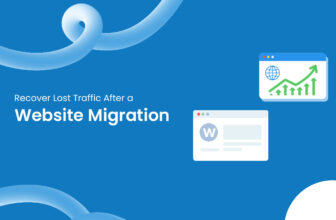
n today’s digital world, businesses are constantly evolving to keep up with technological advancements. Off-the-shelf software solutions may seem convenient, but they often fail to meet the unique needs of every organisation. This is where custom software development comes in. It provides businesses with tailored solutions that align with their specific requirements, enhancing productivity, security, and overall efficiency.
This blog will cover the types of custom software, its applications, and the best solutions for different industries.
What is Custom Software Development?
Custom software development is the process of designing, creating, and maintaining software tailored to a business’s needs. Unlike off-the-shelf solutions, which serve a broad audience, custom software is built to address specific business challenges, offering greater flexibility and scalability.
Why Businesses Prefer Custom Software
- Personalised Solutions: It meets unique business needs.
- Scalability: Software can grow as the business expands.
- Better Security: Custom software reduces vulnerabilities compared to widely-used applications.
- Competitive Advantage: Unique software solutions provide businesses with an edge over competitors.
Types of Custom Software Development
Different types of custom software serve various industries and business functions. Here are some of the most common types:
1. Enterprise Software
Large businesses and corporations use enterprise software to manage multiple functions like HR, finance, and project management. Examples include:
- ERP (Enterprise Resource Planning) Software
- CRM (Customer Relationship Management) Software
- Business Intelligence Software
2. Web Applications
Web-based software solutions help businesses operate efficiently over the internet. Common web applications include:
- E-commerce platforms
- Content management systems (CMS)
- Online portals for customers and employees
3. Mobile Applications
With the growing use of smartphones, mobile apps have become a crucial tool for businesses. Examples include:
- Healthcare apps for patient management
- Retail and e-commerce apps for shopping convenience
- Banking apps for secure financial transactions
4. Cloud-Based Software
Cloud-based software offers flexibility and remote access to businesses of all sizes. Examples include:
- Cloud storage solutions like Google Drive and Dropbox
- Collaboration tools like Slack and Microsoft Teams
- Accounting software like QuickBooks Online
5. AI and Machine Learning Solutions
Businesses use AI-powered software to automate operations, enhance customer experiences, and make data-driven decisions. Examples include:
- Chatbots for customer service
- Predictive analytics for business insights
- AI-powered marketing tools
6. Custom Database Management Systems
Businesses with large volumes of data require specialised database management systems (DBMS) for efficient storage and retrieval. Examples include:
- Inventory management systems
- Customer data management software
- Financial reporting tools
7. IoT (Internet of Things) Solutions
IoT software enables businesses to connect and control smart devices remotely. Examples include:
- Smart home automation systems
- Connected healthcare devices
- Fleet management software for logistics
Applications of Custom Software Development
1. Healthcare Industry
Custom software solutions in healthcare include:
✔ Electronic Health Records (EHR) Systems
✔ Telemedicine Platforms
✔ AI-powered Diagnostics
2. E-Commerce and Retail
Retailers use custom software for:
✔ Online Store Development
✔ Customer Loyalty Programs
✔ Inventory Management
3. Finance and Banking
Financial institutions benefit from:
✔ Digital Payment Solutions
✔ Fraud Detection Software
✔ Mobile Banking Apps
4. Logistics and Supply Chain
Logistics companies use:
✔ Fleet Management Systems
✔ Warehouse Automation Software
✔ Real-Time Shipment Tracking
5. Education and E-Learning
Custom software in education includes:
✔ Learning Management Systems (LMS)
✔ Virtual Classrooms
✔ Student Management Portals
6. Real Estate and Property Management
Real estate businesses use:
✔ Property Listing Platforms
✔ Virtual Tour Applications
✔ CRM for Agents
Solutions for Implementing Custom Software Development
1. Identifying Business Requirements
Clearly define the problem you aim to solve with custom software. Conduct internal discussions to understand workflow inefficiencies.
2. Choosing the Right Technology Stack
Select the appropriate programming languages, frameworks, and tools based on project requirements.
3. Partnering with a Reliable Development Team
Work with an experienced custom software development company that understands your industry needs.
4. Ensuring Security and Compliance
Implement strict security measures to protect sensitive business data.
5. Regular Maintenance and Updates
Custom software requires ongoing improvements to remain efficient and secure.
Conclusion
Custom software development provides businesses with tailored solutions that enhance efficiency, security, and scalability. Whether it’s AI-powered applications, cloud-based platforms, or mobile solutions, companies can gain a significant competitive advantage through custom-built technology.
If you’re looking for a custom software development company in South Africa, ensure you choose one with expertise in your industry. The right partner will help you streamline operations, improve productivity, and drive business growth.
FAQs
1. What is the difference between custom and off-the-shelf software?
Custom software is designed for a specific business, while off-the-shelf software is a general solution used by multiple organisations.
2. How much does custom software development cost?
The cost varies depending on features, complexity, and development time. Small applications may cost a few thousand dollars, while enterprise solutions can be much higher.
3. How long does it take to develop custom software?
Development time depends on project complexity. Small apps may take a few months, while larger systems can take over a year.
4. Is custom software development suitable for startups?
Yes, startups can benefit from custom software to gain a competitive edge and meet specific business needs efficiently.
5. Can custom software integrate with existing systems?
Yes, developers can build software that integrates seamlessly with your current infrastructure for smooth operation.







